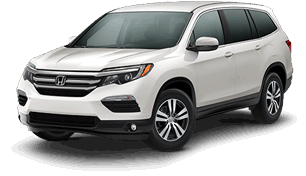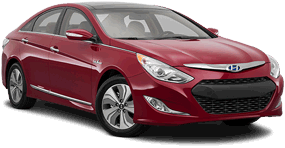The car shopping process comes with its fair share of mystery. The dealership fees tacked onto your purchase aren't always transparent, nor is the actual price tag for used vehicles. And just when you have your car picked out and are comfortable with the purchase price, you get hit by even more mystery - the auto financing rate. Auto loan rates can range from 0% to percentages in the double digits. While the Feds control the rates to an extent, you'll still find a large range based on factors such as your credit score and the type of vehicle you want to buy. We'll demystify this part of the car shopping process to help you get the best possible rate and save hundreds or thousands of dollars over the course of your loan.
Factors that Determine Car Loan Rates

According to LendingTree, the national average for car loan rates is 4.21% on a 60-month loan and typical APRs rates can range from 3% to 10%. The rates for car shoppers with subprime or excellent credit can fall far above or below these averages. In addition to the credit score, the type of vehicle (new or used) will affect the car loan rate.
Credit Score
A car buyer's credit score is the biggest factor that impacts the car loan interest rate. If your credit score isn't where you want it to be, waiting to buy a car until it improves can save you thousands of dollars. LendingTree compiled a list of average APR rates on their platform for the first quarter of 2019. The results show rates ranging from 5.3% for good credit to 21.10% for subprime lenders with scores under 560.
The table above demonstrates the impact a car shopper's credit score can have on the APR. A good or excellent credit score will help keep rates low for car buyers. Subprime credit not only skyrockets the rates up to a staggering 21%, but it can make it difficult to get approved for a car loan entirely. Luckily, there are a few simple steps you can take to boost your score, lower your car loan rate and give yourself the best chance for car loan approval. We'll cover these in the last section of this article.
New vs. Used Cars
 Source: ValuePenguin
Source: ValuePenguin
In addition to the car buyer's credit score, the age of the vehicle and whether it's new or used will impact the interest rate. If you're shopping for a used vehicle, be prepared to pay a higher interest rate than buying new. The reason behind the difference is there's less value and reliability in a used vehicle which means the lender takes on more risk by issuing the loan. Although not as drastic as the difference between credit scores, the rates for used and new cars aren't identical (even if the loan amount is). According to ValuePenguin, one bank offered an APR rate of 3.74% for a new car loan, while the minimum interest rate for a used car loan with the same loan amount and terms was 4.24%.
Why Your Interest Rate Matters

According to U.S. News and World Report, your interest rate is the second largest expense when buying a car. Maintaining a good credit score and taking the right steps prior to buying a car can help you save thousands of dollars over the course of the loan. Auto lenders view car buyers with credit scores of 750+ as financially responsible and reward them with a lower car loan rate. Over the course of an average 5-year loan, this reward adds up to significant savings.
For example, imagine that you buy a vehicle for $30,000 and take out a $25,000, 60-month loan to finance it. If your car loan rate is around 4%, you'll pay an estimated $2,600 in interest. If your credit score is in the fair or poor range and you're offered an interest rate of 12%, your total interest over the course of the loan terms will be $8,360. That is $5,760 more and nearly three times as much as you would pay in interest over the loan term if you had good credit.
How to Score a Lower Car Loan Rate

If overpaying by thousands of dollars to finance your vehicle isn't your idea of fun, we're with you. Fortunately, there are some actions you can take before you purchase your car in order to get the lowest possible interest rate. The first step is to improve your credit score. Start by checking your credit report for any errors that may be dinging your score and notifying the credit bureau of the mistakes. You can also improve your score by paying off your credit card bills on time and reducing your debt-to-income ratio.
Just like you'd compare quotes on the price of the vehicle itself, comparison shopping for the best interest rate can save you hundreds or even thousands of dollars over the course of the loan. Consider all your lender options including banks, credit unions, automakers or online finance companies.
Getting pre-approved for your auto financing is another simple way to compare interest rates and loan terms. Waiting until you're buying the car at the dealership to get financing is convenient but it can lead to a higher interest rate. If you have distressed credit, you might even be denied a loan entirely. When comparing pre-approval loan offers, go with the lowest interest rate and the shortest loan terms in order to save the most money over the lifetime of your car loan.


